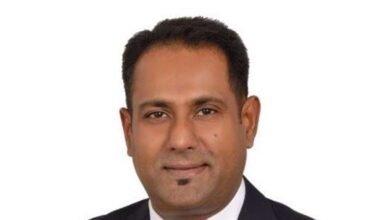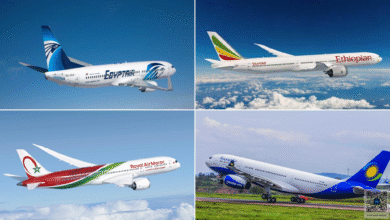Soft Power : an influence played also on the field of image
The Middle Eastern countries, particularly the United Arab Emirates, Qatar, and Saudi Arabia, have understood the importance of managing their image internationally to strengthen their geopolitical position. Through a series of cultural and diplomatic initiatives, these nations seek to influence global public opinion, including in Africa, by organizing cultural events targeted towards the African continent.

Over the last decade, Middle Eastern nations, starting with the United Arab Emirates (UAE), Qatar, and Saudi Arabia, have significantly increased their efforts to improve their reputation through cultural and diplomatic initiatives. In response to criticisms of their domestic policies or involvement in certain regional conflicts, these countries have understood the importance of reinventing themselves in terms of image. Rather than relying solely on military or economic power strategies, these nations are increasingly betting on projects that highlight their cultural dynamism and openness to the world.
For example, the UAE has heavily invested in cultural projects such as the Louvre Abu Dhabi, a world-renowned art museum, and events like Expo 2020 Dubai, which attracted millions of international visitors. Qatar, on its side, distinguished itself through its organization of the 2022 FIFA World Cup and the rise of the Qatar Foundation, which supports cultural and educational projects on an international scale. Saudi Arabia, for its part, has multiplied initiatives in the entertainment sector by allowing world-renowned concerts and sporting events that were previously unthinkable in the kingdom.
Africa: A key continent for cultural diplomacy
Beyond their regional borders, these Middle Eastern countries are also seeking to strengthen their influence in Africa, a key continent in 21st-century international relations. Africa’s role in global affairs, especially in terms of demographic growth, natural resources, and economic development, makes this region a strategic area of influence for the Gulf nations.
Qatar and the UAE have already strengthened their relationships with several African countries through economic and cultural cooperation projects. Qatar, with its involvement in development projects in West Africa, as well as the UAE with its investments in infrastructure and renewable energy initiatives, seeks to position itself as a privileged partner for the continent’s economic development. But beyond investments, the cultural dimension has become a major axis of their influence.
Cultural events: A tool of soft diplomacy

The Middle Eastern countries are increasingly organizing cultural events focused on Africa, aiming to strengthen their ties with the continent and improve their image. These events come in various forms: music festivals, art exhibitions, economic and diplomatic forums, as well as cultural exchange programs.
Qatar, through its Qatar Foundation and the organization of the 2022 World Cup, has highlighted its cultural and sporting commitment to Africa. This initiative goes beyond building infrastructure; it extends to the dissemination of Arab and Middle Eastern culture, thus creating bridges between peoples. Moreover, Qatar supports several educational and development projects, particularly in countries like Senegal, where it funds schools and training programs.
The UAE, on its part, has multiplied events in Africa, notably by organizing cultural forums and art exhibitions targeted at the younger African generations. The Dubai International Film Festival, for example, attracts numerous African artists and filmmakers every year, just as the UAE supports initiatives in favor of art and culture across Africa. These initiatives not only help improve their image as influential cultural actors but also promote a message of tolerance and intercultural dialogue.
One of the most effective strategies in the cultural diplomacy of Middle Eastern countries lies in their investments in education. The UAE’s “Al Qassimi Foundation” initiative, for example, funds education programs in African countries while creating academic exchanges that bring together Arab and African students. Scholarships, university collaborations, and joint research in fields such as science, technology, and the arts not only strengthen the ties between these regions but also allow young Africans to discover another facet of the Middle East.
Qatar, for its part, has been particularly active in financing schools, colleges, and universities across Africa, with the goal of supporting the continent’s intellectual and scientific development. Through these actions, the Gulf countries are not only seeking to improve their image but also to build a lasting relationship based on mutual respect and collaboration.
An influence at the service of regional ambitions
Soft power has become a key element of the strategy for Middle Eastern countries to redefine their place in the world. Through cultural events, investments in education, and economic partnerships, these nations aim to position themselves as essential players in global development, especially in Africa. These initiatives help establish strong ties with the continent while consolidating their regional and international influence. By playing the card of cultural diplomacy, these countries not only manage their image but also assert themselves as indispensable partners in the global challenges of the 21st century.







